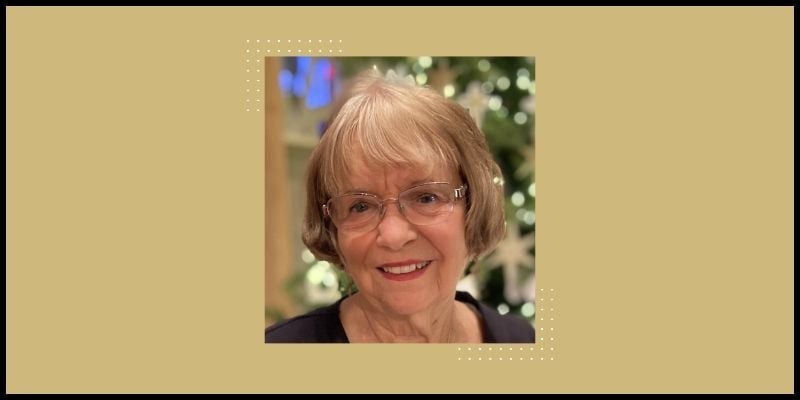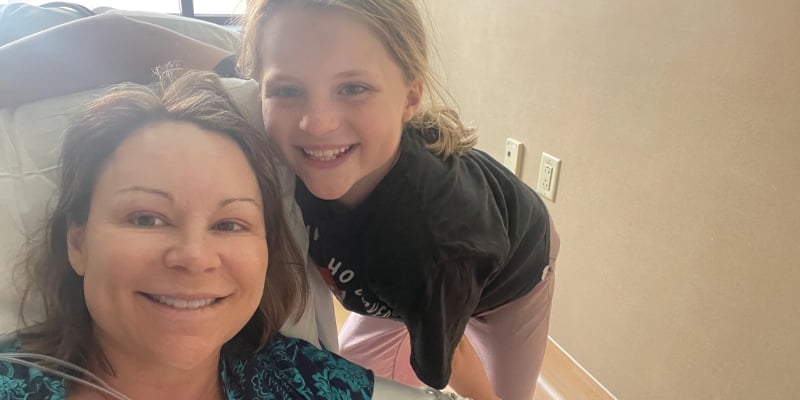What made you decide to pursue a nursing degree?
I was a doctor in Argentina before I came to the US. Once my kids started to grow up, I realized I needed to get back to what I have always loved most, my one true passion: healthcare. Going into nursing is the best decision I have ever made.
What do you love about being a nurse?
Nursing is all about being with people and caring for people, and it’s the one thing I truly love to do. What keeps me going is helping people overcome their health difficulties and knowing that what I do every day helps others. Seeing nursing students and new nurses develop into outstanding nurses fills my cup every day.
What made you decide to earn your degrees from CU Nursing?
CU Nursing has a strong history of excellence in education, so it was a great fit for me. I chose the UCAN program because I needed to earn my degree quickly and get back into the workforce since I had responsibilities. Once I became a CU Nursing alumna, I understood the college and what to expect, and I wanted to earn a master’s degree at a school that provided a good foundation for my advanced degree.
Why did you choose to earn a Psychiatric Mental Health Nurse Practitioner degree?
Psych has always fascinated me. I love talking to people. I also enjoy figuring out how people make the decisions they make and how they’re affected by their mental health struggles. Our mental health impacts our lives daily and I wanted to help people struggling with mental health conditions. I also knew there was a huge void in psychiatric mental health care for people who speak Spanish, and I wanted to choose a career path that was meaningful and where I could make a difference.
You joined the National Association of Hispanic Nurses (NAHN) shortly after graduating from CU Nursing. Why did you want to get involved with the organization?
When I went back to school, I wanted to find a professional organization where I could fit in and help guide me in my nursing career. As an immigrant, sometimes it can be hard to fit in in certain places. I found that being part of a professional organization is very valuable, it led to leadership roles, and it allowed me to advocate for the health of our Latino population.
Why is it important to be an advocate for our Latino population?
NAHN wants to give a voice to our Latino nurses, and we want to increase the awareness of issues affecting our Latino community or our Latino nurses. What things are a struggle for them? Those are things that we talk about within NAHN.
Our Latino population is unfortunately suffering because of health inequities. The Latino population has high rates of uninsured or underinsured status, so people can’t get the primary care they need. That means they don’t have access to early detection of conditions like diabetes, or hypertension. These diseases can progress and cause complications that sometimes require hospitalization, which can be very expensive.
We also want to make sure we have enough diverse nurses in the workforce. We want to support nursing students when they’re in school to ensure we attain more representation in the workforce. Research shows that people have better outcomes and feel more connected when they see healthcare providers who look like them.
You recently wrapped up your first year as president of NAHN’s Denver chapter. What are some things you do in that role, and why do you enjoy it?
When you assume the presidency, you guide the chapter and help the organization establish its goals. NAHN is a national organization with more than 40 chapters. So in my role, I want to make sure we’re following the mission of advocating health equity and advancing the health of our Latino community as well as improving nurses’ professional development.
Can nursing students join or get involved?
Nursing students can become members – in fact, you don’t even have to be a nurse or a student nurse to join. You have to be committed to our mission and vision in supporting the needs of our Latino community.
What are the benefits of joining a professional organization like NAHN?
I think that all nursing students and alumni should consider joining a nursing organization, whether it is a specialty association or one associated with your ethnicity or culture. It will not just look great on a resume for a student or a current nurse. Being active within the organization, going to meetings, and getting involved in a professional organization’s activities can be very rewarding. Benefits of being a part of a professional organization include networking, professional development, scholarship opportunities, mentorship, and the opportunity to participate in community-based projects.
What advice do you have for people who are considering having a second career in nursing?
I want to tell anyone who’s had to start again, to never give up. The American Dream is possible. You CAN reach your goals.
What would you tell a student nurse, or someone thinking of becoming a nurse, about the profession?
I encourage nursing students to keep going – I know things get hard – and lots of people want to quit. But keep going, because nursing is a truly rewarding career full of possibilities.



